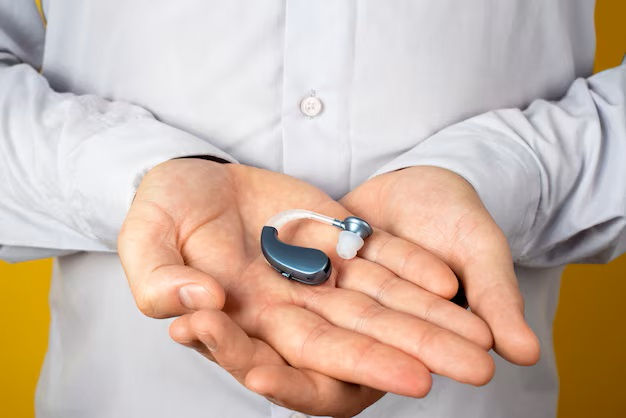Comprehensive Guide to Hearing Aid Maintenance, Senior Hearing Tests, and Consultations
- totalhearingcenter
- Nov 1, 2024
- 3 min read
As people age, taking care of their hearing health becomes increasingly essential. Maintaining hearing aids, understanding the need for routine hearing tests for seniors, and knowing when to seek a hearing aid consultation are all vital aspects of hearing care. In this guide, we’ll explore the importance of hearing aid wax guard replacement, why regular hearing tests benefit seniors, and what to expect during a hearing aid consultation.
Why Hearing Aid Wax Guard Replacement Matters
Hearing aids play a crucial role in improving the quality of life for those with hearing impairments, but regular maintenance is key to keeping them in optimal condition. One of the most common issues hearing aid users encounter is wax buildup, which can reduce device performance. Here’s why hearing aid wax guard replacement is necessary:
Prevents Blockages: Earwax can clog the hearing aid’s receiver, diminishing sound quality and volume. A wax guard acts as a barrier, preventing wax from entering the device.
Prolongs Device Life: Regular wax guard replacement protects sensitive parts of the hearing aid from damage, extending its lifespan.
Improves Hearing Clarity: A fresh wax guard ensures that sound is transmitted clearly, allowing users to enjoy the full benefits of their hearing aid.
Replacing the wax guard is a quick process that can usually be done at home with the right tools. However, many hearing aid providers also offer wax guard replacement services during routine check-ups to ensure hearing aids perform at their best.
The Importance of Hearing Tests for Seniors
Hearing loss can have a significant impact on social interactions, cognitive health, and overall well-being, especially in seniors. Hearing test for seniors are essential for early detection and treatment of hearing issues. Here’s why regular hearing assessments are vital:
Early Detection of Hearing Loss: Regular testing can identify hearing issues before they worsen, allowing for timely intervention.
Improves Quality of Life: Addressing hearing loss can help seniors maintain active, fulfilling social lives by improving communication with friends and family.
Supports Cognitive Health: Studies have shown a link between untreated hearing loss and cognitive decline. Regular hearing tests help detect hearing loss early, which may reduce the risk of cognitive issues associated with aging.
Hearing tests are typically quick and non-invasive, involving a series of simple sound and word recognition tests. Many hearing clinics offer specialized services for seniors, ensuring a comfortable experience with results tailored to their specific needs.
Understanding Hearing Aid Consultations
A hearing aid consultation is an essential first step for anyone experiencing hearing loss and considering hearing aids. During a consultation, hearing care professionals assess your hearing needs and lifestyle to recommend the best hearing aid options. Here’s what you can expect:
Comprehensive Hearing Evaluation: A thorough hearing test will be conducted to measure the level and type of hearing loss.
Customized Device Recommendations: Based on the test results and lifestyle needs, the hearing care professional will suggest suitable hearing aid models.
Fitting and Trial: Many providers offer a trial period for recommended hearing aids, allowing users to ensure comfort and effectiveness.
Maintenance and Care Tips: Professionals provide guidance on caring for hearing aids, including wax guard replacement, battery management, and cleaning tips to prolong the device’s life.
Hearing aid consultations are beneficial for both new users and those seeking an upgrade, offering tailored advice to make informed decisions about hearing care.
Tips for Finding a Quality Hearing Care Provider
Finding a reputable hearing care provider can make a world of difference in your experience. Look for providers that offer comprehensive services, such as:
Routine Wax Guard Replacement Services: Regular maintenance services ensure hearing aids perform optimally over time.
Specialized Senior Hearing Tests: Providers experienced with senior care can offer tailored tests that meet the unique needs of older adults.
Professional Consultations: Providers who offer thorough consultations will help you select the best hearing aids for your specific needs and lifestyle.
Many hearing care centers also offer follow-up services and adjustments, ensuring that your hearing aids remain comfortable and effective.
Final Thoughts: Prioritizing Hearing Health for a Better Life
Maintaining hearing health is essential for overall well-being, particularly as we age. Whether it’s routine hearing aid wax guard replacement to keep devices working smoothly, regular hearing tests for seniors to detect early signs of hearing loss, or a hearing aid consultation to find the perfect device, these steps contribute to a better quality of life. Proactively caring for your hearing health enables clearer communication, social engagement, and cognitive health, making it a vital aspect of aging well.




Comments